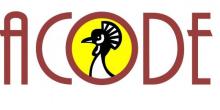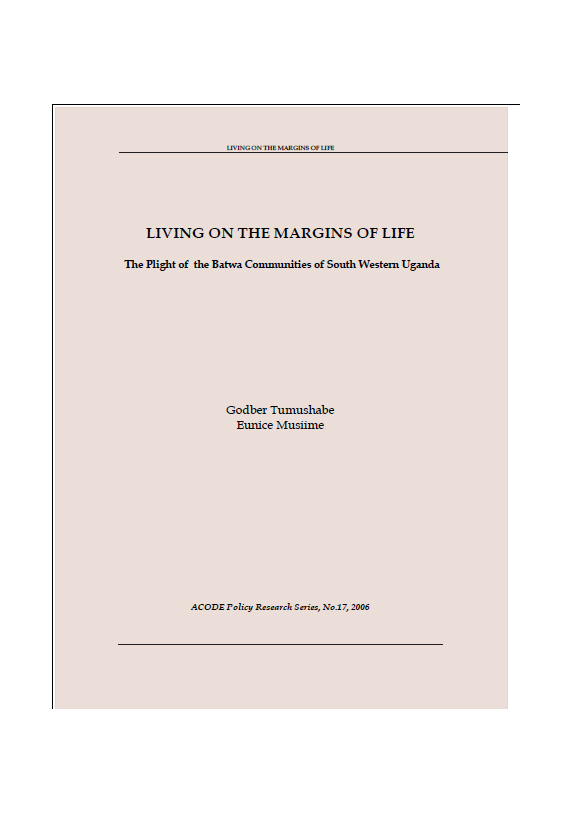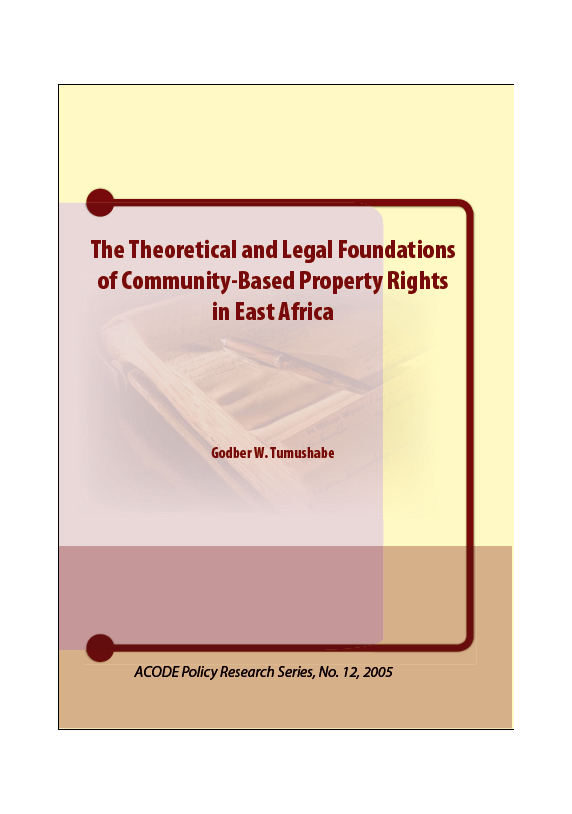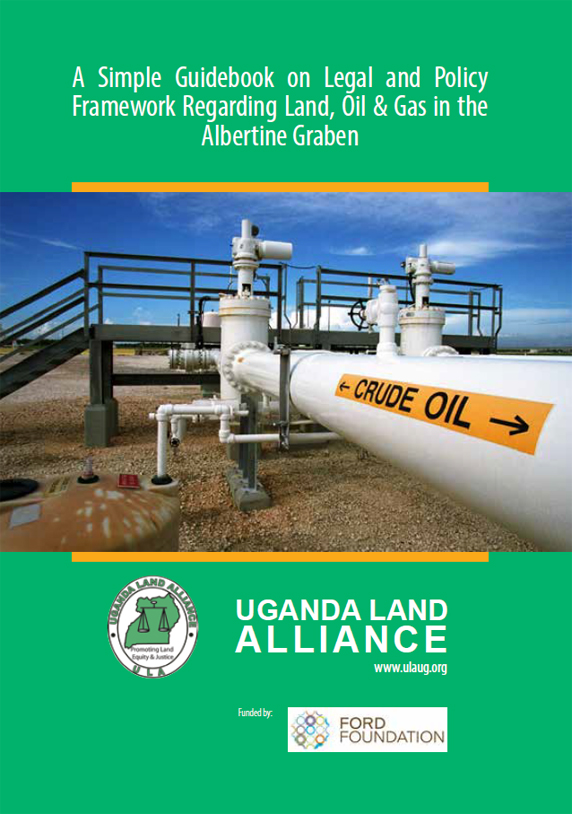
Topics and Regions
Advocates Coalition for Development and Environment (ACODE) is an independent public policy research and advocacy think tank based in Uganda working in East and Southern Africa. ACODE was first registered in 1999 as a Non-governmental organization (NGO). In 2004, the organization was incorporated as a company limited by guarantee and without having a share capital. ACODE is one of the most dynamic and robust regional leaders in cutting-edge public policy research and analysis in a range of areas including governance, trade, environment, and science and technology. ACODE has, for the last four consecutive years, been ranked in the Global Go To Think Tank Index as one of the best think tanks in Uganda and one of the top think tanks in the world. Think Tanks in Africa continue to play a major role in policy development and implementation. The Advocates Coalition for Development and Environment (ACODE) has been ranked 23 out of 92 Top Think Tanks in Sub-Saharan Africa and 29 out of 90 globally with Best Advocacy Campaign in the 2015 Global Go To Think Tank Index Report (TTI), led by the University of Pennsylvania through its Think Tanks and Civil Societies Program (TTCSP).
ACODE is non-partisan and independent and therefore does not align with any political party or political organisation. However, given the direct relationship between development policy and politics, we believe that our work is political and it must stand for certain political causes of a bi-partisan nature. Such causes are legitimate issues of research interest so long as they are defined on the basis of constitutionalism, the rule of law as well as national and regional interests as expressed in the relevant treaties, strategy documents and declarations. ACODE's work is based on three broad programmes areas: Environmental Democracy, Peace and Democracy, and Innovation and Biotechnology Policy. Our core business is to undertake advocacy-driven public policy research and analysis on contemporary and emerging public policy and governance issues that have a significant impact on national development.
Details
Location
Contributions
Displaying 31 - 40 of 52STUDY REPORT ON THE REVIEW OF LAWS ON SUCCESSION IN UGANDA
The Uganda Law Reform Commission with support from the Justice Law and Order Sector undertook a study to review the laws of succession in Uganda. The purpose of the study was to ensure among others that; the provisions of the laws of succession are in conformity with the 1995 Constitution of the Republic of Uganda, national laws and international and regional human rights standards and practices, are up to date with the changing socio‐ economic circumstances of Uganda, and that the law is accessible to the people and its implementation can be better realised.
Living on the Margins of Life
The meaning and scope of the concept of Community-Based Property Rights (CBPR) has become a dominant feature of conservation and development policy discourse over the last decade. The debate has largely been shaped by the growing trends where governments have continued to appropriate traditional lands for conservation and development activities that have resulted into large scale dislocation and widespread disenfranchisement of sections of our society.
The Theoretical and Legal Foundations of Community-Based Property Rights in East Africa
Indigenous, mobile, and local communities all over the world have for millennia played a critical role in conserving the earth’s patrimony. They have protected forests, wetlands, rangelands, watersheds, hunting grounds, rivers and streams and other water catchment systems that are to day the basis of prosperity for all nations. “Community” husbandry of these resources has been done for a wide range of reasons ranging from economic, cultural, spiritual, aesthetic to many others.
LAND GRABBING AND ITS EFFECTS ON THE COMMUNITIES IN THE OIL RICH ALBERTINE REGION OF UGANDA
This report is in relation to a study on the Land Tenure and Livelihood Issues in the Albertine Graben Region. The study was carried out in three districts of Amuru Buliisa and Hoima. The study specifically focused on tenurial arrangements and land transactions in the region. The ultimate outcome of this study will be drawing of policy issues for policy engagement and dialogue towards a comprehensive policy direction to land governance in the Albertine Graben.
A Simple Guidebook on Legal and Policy Framework Regarding Land, Oil & Gas in the Albertine Graben
Uganda discovered commercial quantities of oil in the country in 2006 and ever since, there has been increased activity in the exploration of oil and gas. The exploration activities are being undertaken in the Albertine Graben in mostly the districts of Hoima, Buliisa, and Nwoya by international oil companies contracted by the government. Currently, there are three licensed companies namely, Tullow Uganda operations Ltd , Total E&P and CNOOC Uganda Ltd operating in the districts of Hoima, Buliisa and Nwoya within the Albertine Graben.
Developing a Land Conflict Monitoring and Mapping Tool for the Acholi Sub-Region of Northern Uganda
Well before the effective ending of the protracted Lord’s Resistance Army (LRA)
insurgency in northern Uganda in July 2006, and at a time when the entire rural
population was displaced into camps, concerns had emerged around land, in particular
in the Acholi sub-region, where the war had been most intense and longest lasting
(Adoko & Levine 2004). Through forced displacement, almost all rural Acholi
families has been prevented from occupying their land for many years, years in which
Land disputes in Uganda
An overview of the types of land disputes and the dispute settlement fora.
Land conflicts and their impact on Refugee women’s livelihoods in southwestern Uganda
This paper presents the preliminary findings of a study on land conflicts between refugees and host communities in southwestern Uganda and their impact on refugee women’s livelihoods. Uganda has a long history of hosting refugees that dates back to the 1940s, when it hosted Polish refugees; Rwandese and Sudanese in the 1950s (Holborn 1975:1213-1225).
Socio-Economic Effects of Chinese Agricultural Investments on the Environment and Local Livelihoods in Uganda
The nature and significance of China's engagements with African agriculture continues to be hotly debated in the media, academia and policy circles around the world. Although China has been engaged in Uganda’s agriculture for more than 40 years, the recent jostle for agricultural land by private Chinese investors is dystifying and justifies the need to conduct a scientific study to provide clear evidence before the issue gets bundled into the messy anecdotal media inquiry.
Draft Final Report of the Implementation of The Land Governance Assessment Framework In Uganda
The Land Governance Assessment Framework (LGAF) is a diagnostic tool for the evaluation of the legal framework, policies and practices regarding land and land use. The LGAF is based on a comprehensive review of available conceptual and empirical material regarding experience in land governance (refer to Land Governance Assessment Framework: Conceptual Approach, Formulation and Methodology). In 1995, the Uganda government embarked on land reform starting with the Constitutional provisions. Land reform was imperative because of the country’s turbulent land tenure history.










